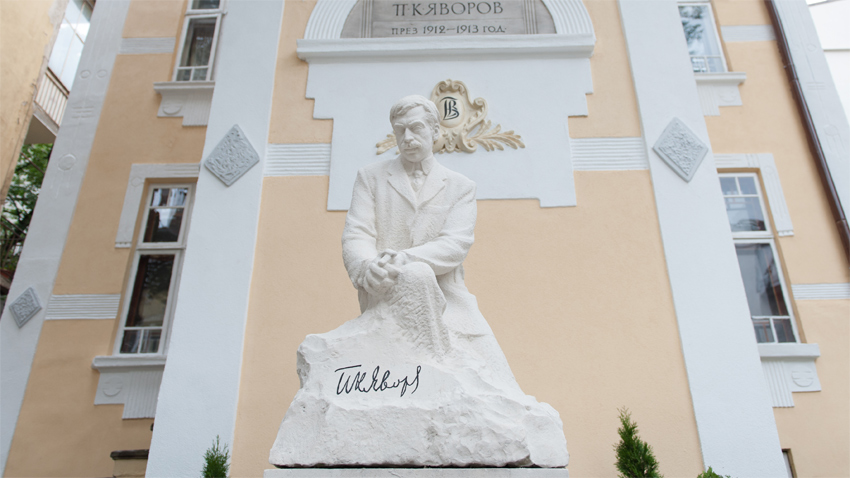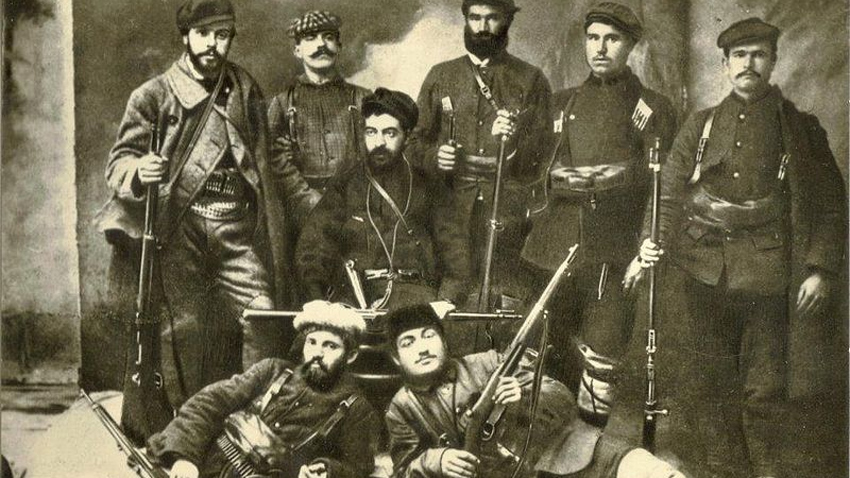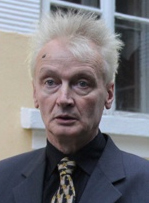
Not long ago we marked 140 years since the birth of Peyo Yavorov, one of Bulgaria’s best loved poets. His dramatic fate has always been at the focus of public attention; for the lovers of literature and most of all of poetry, his life is a constant object of interpretation.
“Interest in the poet as an individual, in different details of his life has never waned,” says Ivo Miltenov, curator of the Yavorov museum-house in Sofia. Yet, though we may know his poetic side, the details in Yavorov’s life as a revolutionary seem to evade us.
As one whole generation of Bulgarians born around the time of the liberation of Bulgaria from Ottoman domination in 1878, by the age of 17, Yavorov was consumed with the idea of liberating the Bulgarian lands in Macedonia, left within the bounds of the Ottoman Empire by force of the Berlin Treaty signed on 13 July, 1878.
 “That was when a national ideal was born – the ideal of reuniting the fragmented country,” Ivo Miltenov says. “As soon as he first entered Macedonia with Mihail Chackov and his band of revolutionaries in 1902, Yavorov published the newspaper “Freedom or death”, an illustration of his impassioned spirit. Yavorov’s revolutionary ardour was genuine, an emanation of the Bulgarian national liberation spirit, which came to a head in 1912, with the outbreak of the Balkan War.”
“That was when a national ideal was born – the ideal of reuniting the fragmented country,” Ivo Miltenov says. “As soon as he first entered Macedonia with Mihail Chackov and his band of revolutionaries in 1902, Yavorov published the newspaper “Freedom or death”, an illustration of his impassioned spirit. Yavorov’s revolutionary ardour was genuine, an emanation of the Bulgarian national liberation spirit, which came to a head in 1912, with the outbreak of the Balkan War.”
 To scholars of his work, Yavorov will be remembered most of all for his love poetry, marking the highest point in Bulgarian poetry as a whole. Most of these works were written in Nancy, France in 1906-1907 as epistles addressed to the first love of his life Mina Todorova. If we make a comparison with French poets of the age of presymbolism and symbolism like Charles Baudelaire, Paul Verlaine or Stephane Mallarme, where would Yavorov stand?
To scholars of his work, Yavorov will be remembered most of all for his love poetry, marking the highest point in Bulgarian poetry as a whole. Most of these works were written in Nancy, France in 1906-1907 as epistles addressed to the first love of his life Mina Todorova. If we make a comparison with French poets of the age of presymbolism and symbolism like Charles Baudelaire, Paul Verlaine or Stephane Mallarme, where would Yavorov stand?
“Yavorov is frequently compared to Baudelaire, as the work of the French poet is so dramatic. But the refinement of his works may be said to bring him closer to Verlaine, though that is a matter of interpretation. Yavorov liked the symbolist Maurice Maeterlinck, whose works he translated and published in Misul (Thought) magazine. But there are no elements taken from other poets in his own work, he is genuinely original.”
Until the end of the 19th and the beginning of the 20th century, Bulgarian poetry was under the influence of the national liberation struggles. As new generations were born, poetry changed, turning to the invisible, the mystic.
“Matter itself became deeper and more difficult of study, so the instruments had to be finer, and one such instrument is symbolism,” says Ivo Miltenov. Perhaps that is the reason why Yavorov is so close to the hearts of all people seeking to look below the surface of things,and see the substance.
The "Invisible Sofia" cycle this year will end with the "Artisans of Sofia" exhibition, dedicated to movable cultural heritage. The exhibition will be opened today in the renovated Central Sofia Market Hall. "In 2025, we will..
The famous folklore ensemble Trakia celebrates its 50th anniversary with a gala concert tonight in Hall 1 of the National Palace of Culture (NDK). The instrumentalists, choir singers and dancers will perform excerpts from their repertoire in a show..
The long-awaited premiere of Ballet Arabesque's The Dante Secret has captivated Bulgarian cultural circles and become the focus of discussion since the end of the last theatre season. The production is created by an extremely strong artistic team,..
Days of Bulgarian culture will be organized in Madrid between November 9 and December 31, 2024, BTA reported, citing Latinka Hinkova, president of the..

+359 2 9336 661
